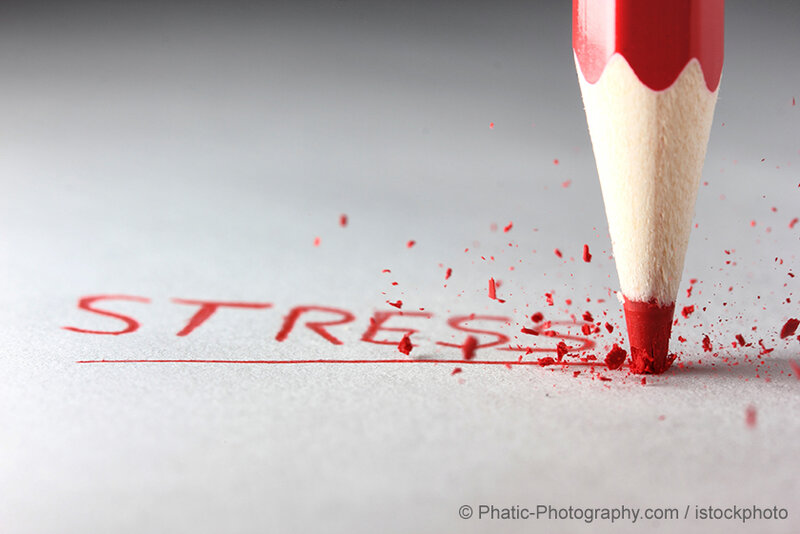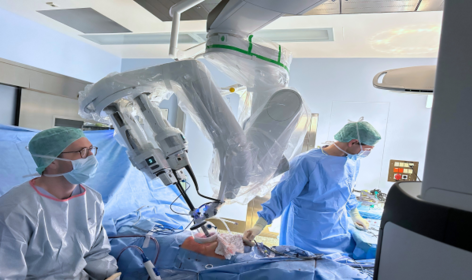Stress and burnout - avoid, recognize, combat
Psychosomatic medicine and psychotherapy(June 10, 2025) The best way to combat stress is to prevent it, says a stress researcher - and gives tips on what helps when the strain becomes too great.
In working life, superiors, customers and clients often expect top performance. This can be quite exhausting. Stress arises when you feel that you can no longer meet the demands placed on you. "The strain is then so great that the mental and physical strain can no longer withstand the pressure," explains Prof. Dr. Claas Lahmann, Medical Director of the Department of Psychosomatic Medicine and Psychotherapy at the Medical Center - University of Freiburg. But how can stress be recognized early on - and how can it be avoided or reduced? What helps when the stress becomes too great?

If stress and coping are no longer in balance, stress can arise. ©ketchum/ Medical Center - University of Freiburg
Avoid stress: Prevention is the key
"The best way to combat stress is prevention," stress researcher Lahmann emphasizes. This includes getting enough sleep, a balanced diet and regular physical exercise. Even small breaks in the working day can make a big difference: a quick chat with colleagues about the past weekend, a glass of water or a stretching exercise - all of these contribute to short-term relaxation.
Managers also play an important role: "Praise your employees. This increases motivation and lowers stress levels," advises Lahmann.
Acute stress: even helpful in the short term
Acute stress is not automatically a cause for concern - on the contrary. It occurs during short-term challenges, such as a job interview, and is part of normal working life. Recent studies from basic research even show that short-term stress can improve performance and learning ability.
Chronic stress: recognize and act
However, if stress becomes a permanent condition, it can have a negative impact on health. "Chronic stress is unhealthy for our bodies," warns Lahmann. The first signs can be headaches, neck and back pain, gastrointestinal complaints or sleep disorders.
There are effective countermeasures: In progressive muscle relaxation, stress is reduced through targeted tension and relaxation of individual muscle groups - for example, by clenching a fist for five seconds and then relaxing. Mindfulness-Based Stress Reduction (MBSR) also helps: yoga and meditation exercises promote conscious, non-judgemental perception and help to deal with stress more calmly.
Anyone who suffers from persistent complaints or feels increasingly exhausted should pay attention. "If symptoms occur frequently or are new, you should seek professional help," says Lahmann. A new job can also be a trigger. If problems are suppressed or inner emptiness spreads, this can indicate burnout.
Help with burnout: contact point at the Medical Center - University of Freiburg
The outpatient clinic of the Department of Psychosomatic Medicine and Psychotherapy offers targeted support for exhaustion disorders such as burnout. "If patients feel completely burnt out, the experts at our outpatient clinic can help," says Lahmann.
A comprehensive diagnostic assessment is first carried out during outpatient appointments. Depending on the findings, psychotherapy can then begin. "Therapy helps patients to overcome their state of exhaustion and regain their strength," emphasizes Lahmann.
Contact the outpatient clinic for exhaustion disorders (burn-out)
Telephone registration:
Monday to Friday, 9 a.m. to 12 p.m.
+49 761 270-68410
More interesting articles
Medical Center - University of Freiburg
Central InformationPhone: 0761 270-0
info@uniklinik-freiburg.de
Corporate Communications
Breisacher Straße 15379110 Freiburg
Phone: 0761 270-84830
kommunikation@uniklinik-freiburg.de



